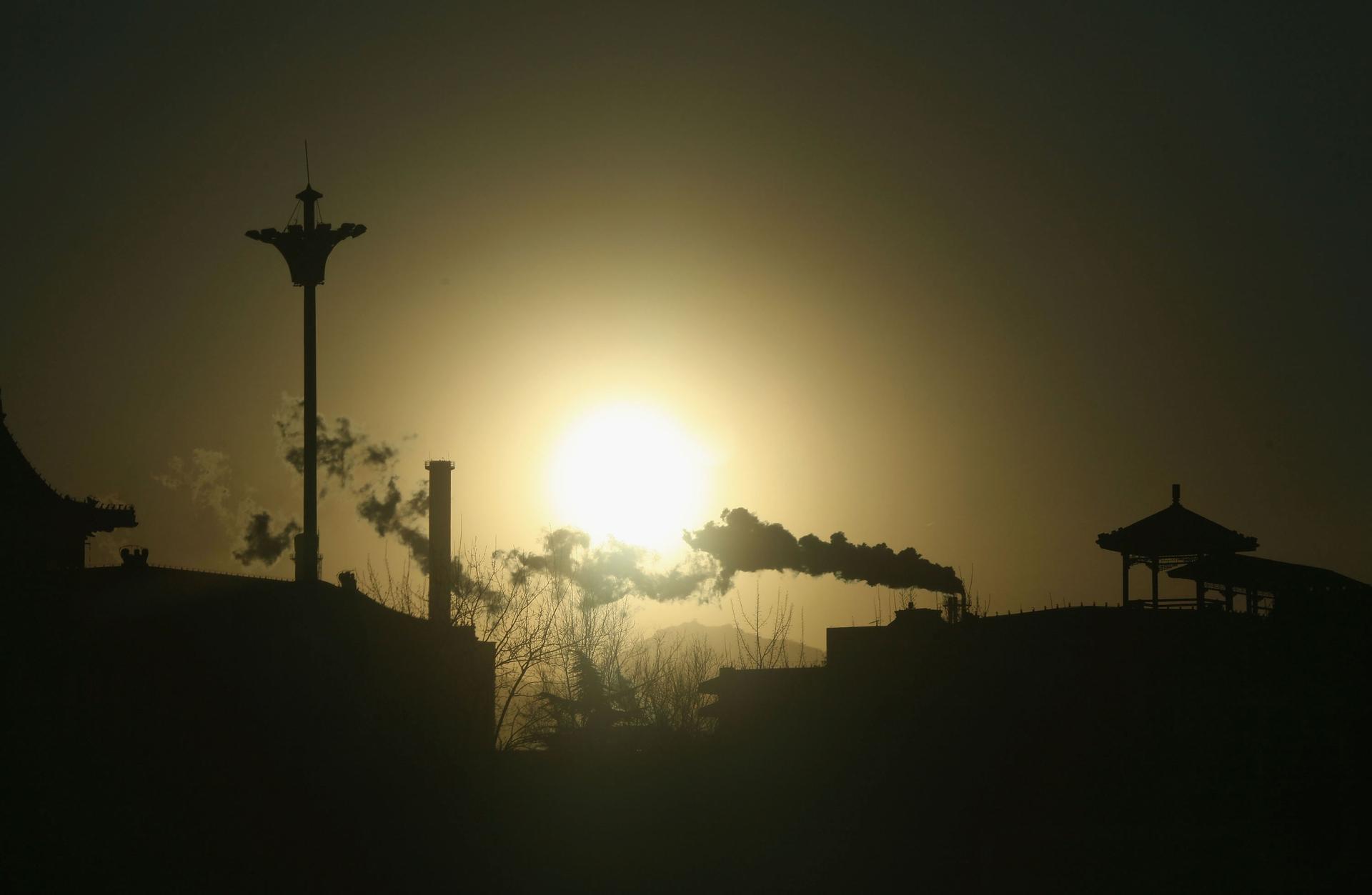Beijing’s air pollution reaches hazardous levels (UPDATES)
Chimneys belch out smoke at the Beijing Capital Steel Plant , which has long been blamed as Beijing’s worst polluter, on January 31, 2007 in western suburbs of the Chinese capital.
With Beijing's air pollution hovering at hazardous levels for the third straight day on Sunday, the Beijing Environmental Protection Ministry announced factories and construction sites would stop work until air quality improved, the Los Angeles Times reported.
China's government also ordered official vehicles to stay off the road, Bloomberg News reported.
The heavy smog levels very blocking visibility, had have officials urging residents to stay inside. Those who did venture into the city streets wore face masks for protection, Agence France Presse reported.
The serious pollution is expected to continue until at least Tuesday, and is reportedly the worst since Beijing's government started collecting pollution data a year ago, the Associated Press reported.
“Although the government has announced efforts to cut pollution, the problem is regional and to fix Beijing’s problem, we also have to fix industrial pollution in neighboring regions like Hebei and Tianjin and even as far as Inner Mongolia," Li Yan, Beijing-based head of Greenpeace East Asia's climate and energy campaign, told Bloomberg Businessweek.
According to BBC News, the air in the Chinese capital tastes like coal dust and car fumes, two of the main causes of pollution.
If inhaled, it can cause respiratory infections as well as increase risk for lung cancer and heart disease.
World Health Organization guidelines say average concentrations of the tiniest pollution particles, known as PM2.5, should not be above 25 micrograms per cubic meter, according to BBC News.
China's air pollution is among the world's worst, according to international organizations, who point to the country's breakneck industrialization, including huge coal consumption and the world's biggest auto market and car-clogged roads, AFP reported.
Smog typically worsens further in the winter due to heating needs, AP reported.
The US Embassy in Beijing tweets its hourly pollution data. As of Saturday morning, the air quality index was at 736 — 236 points above the hazardous band of air quality, defined as between 300 and 500, the South China Morning Post reported.
The air quality index rating reached 755 on Saturday night and then declined, but was still at hazardous levels on Sunday, the LA Times reported.
Other Chinese cities, including Tianjin on the coast east of Beijing and Wuhan city in the south, also have been experiencing severe pollution in recent days.
More from GlobalPost: Air pollution causes heart problems, says a new study on Beijing smog effects
We rely on support from listeners and readers like you to keep our stories free and accessible to all. Monthly gifts are particularly meaningful because they help us plan ahead and concentrate on the stories that matter. Will you consider donating $10/month, so we can continue bringing you The World? Donations made between now and Dec. 31 will be matched 1:1. Thanks for investing in our work!
